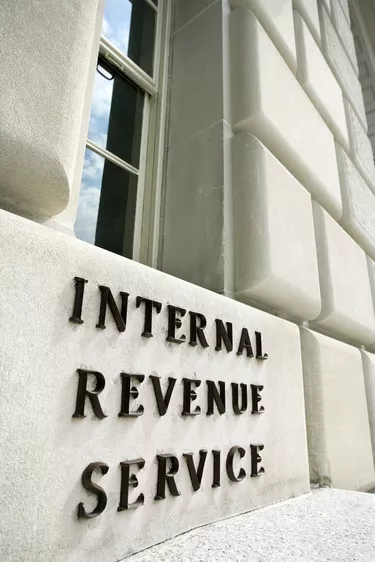
The Internal Revenue Service has sweeping powers when it comes to collecting taxes. The IRS has the right to garnish payments, seize assets and even put you in jail. Its powers go far beyond those of other creditors. A common misperception is that retirement accounts and pensions are exempt from garnishment and seizure. The IRS, however, can do both.
IRS Garnishment
Video of the Day
If you owe back taxes for any of the last 10 years, the IRS can come after any income or assets you have that can be used to offset your debt. Unlike other creditors, the IRS does not have to get a court order to do so. Basic needs, such as a car for work, clothing, or personal items, are exempted from seizure. The IRS can only garnish a percentage of your wages or pension income so that you are not left without enough to live on. Seizure and garnishment are last resorts to the IRS, so if it is threatening to do so, there still may be time to work it out to avoid it.
Video of the Day
Social Security and Other Federal Payments
The IRS can garnish Social Security old age, survivors and disability payments for back taxes. It can garnish up to 15 percent of each payment until the entire tax debt is paid off or until 10 years have expired, after which time, it cannot legally collect back taxes. Supplemental Security Income payments are exempt from garnishment because they are needs-based. With non-tax debts, the first $750 of your monthly Social Security check is protected from creditors, but the IRS can take the 15 percent regardless of how much that leaves you with.
Private Pension Payments
The IRS can also garnish company pension payments. After it presents a garnishment notice to your pension plan administrator, it can garnish up to 25 percent of your pension payment. This applies even if it is also taking 15 percent of your Social Security check. In some states, courts have a right to limit garnishment if a taxpayer can prove that it is creating or increasing financial hardship.
What Else Can the IRS Seize?
The IRS can file liens against and seize almost any other asset you own, such as houses -- even your primary residence -- vehicles, boats and investment accounts. Personal amounts used for living, such as tools of your trade, household items up to $7,720 in value, and clothing and school books are exempt from seizure. Also, if you owe less than $5,000 to the IRS, it cannot seize your home.